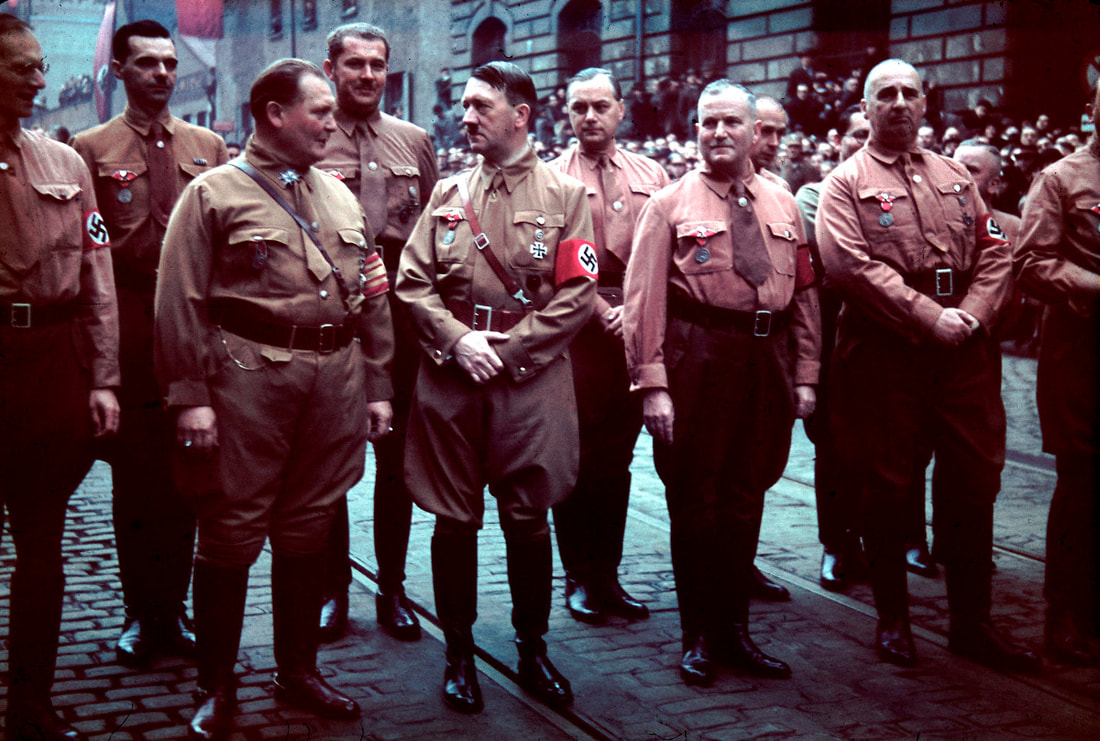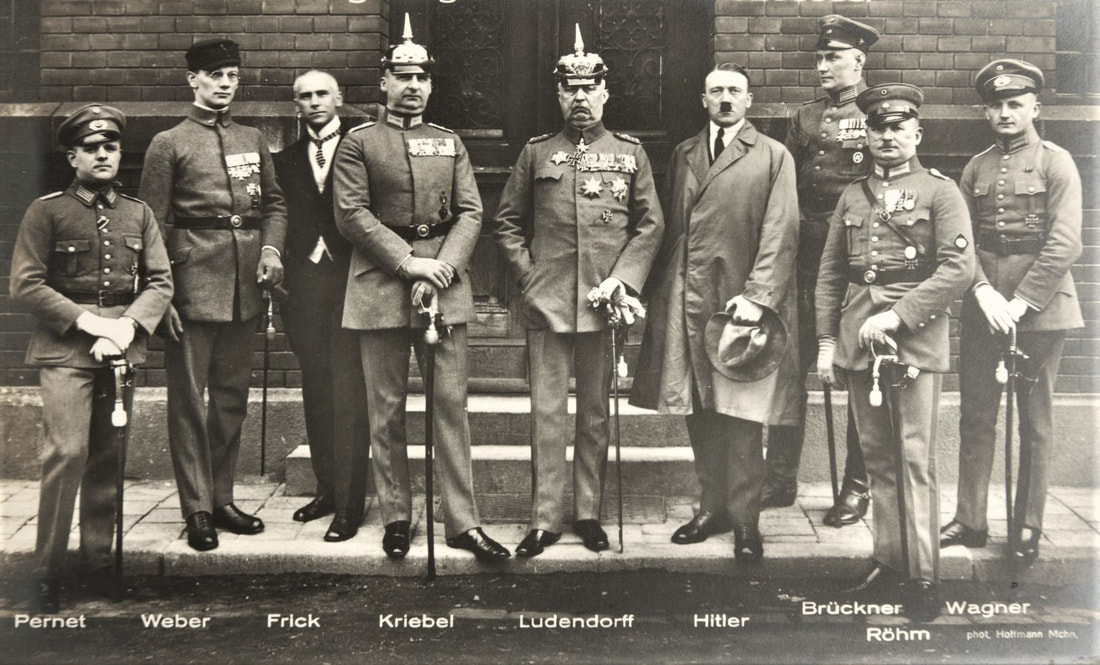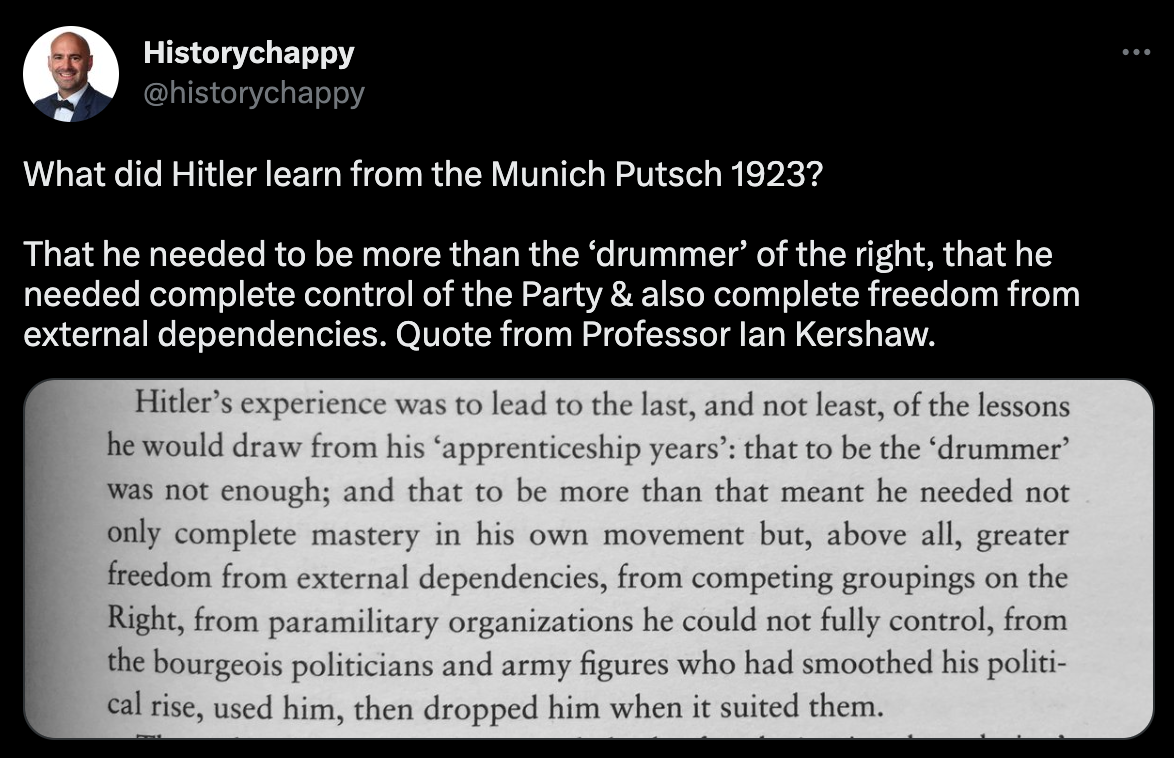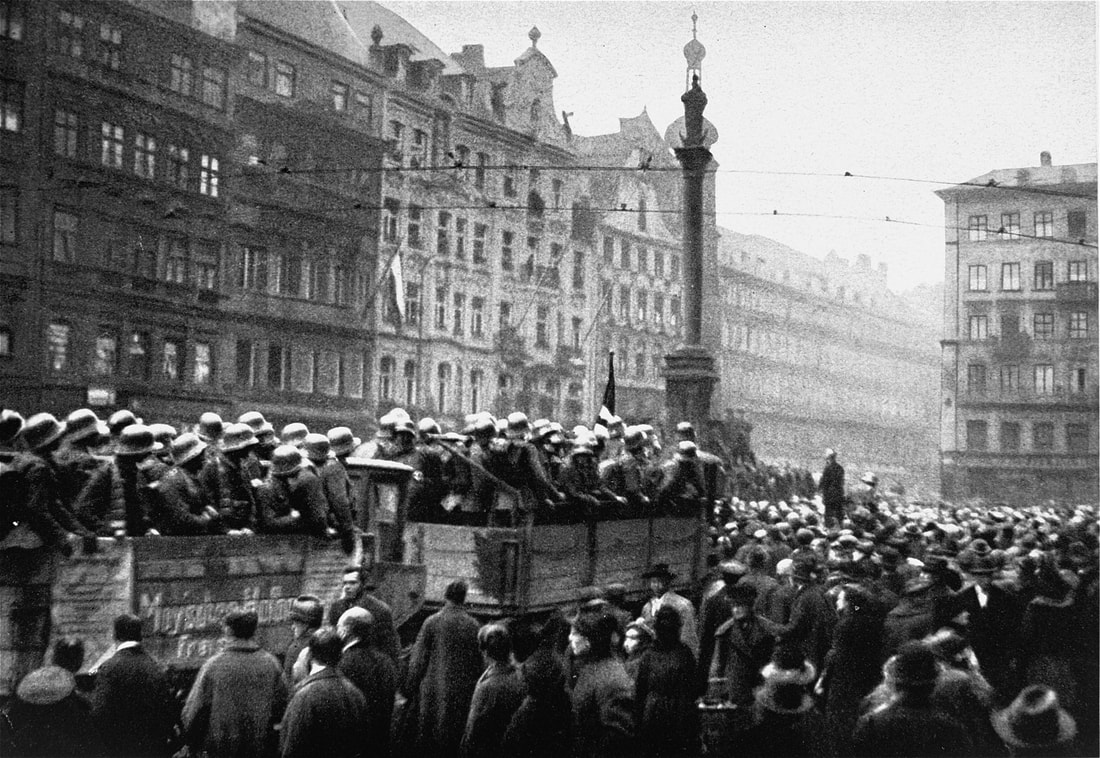|
The Munich Putsch The Munich Putsch, also known as the Beer Hall Putsch, was a failed coup attempt by Hitler and his small, provincial Nazi Party in Germany in 1923. It ended in failure, Hitler's arrest and a number of deaths to members of the NSDAP. The Putsch was a significant event in the early history of the Nazi Party and had some far-reaching consequences. In this article, we will examine some of the significant consequences of the Munich Putsch which should be considered when examining this early watershed moment in twentieth century German history and politics. Consequence One: Rise of Adolf Hitler The Munich Putsch was a turning point in the life of Adolf Hitler, who was the leader of the Nazi Party at that time, having shunted aside its founder (and the significantly less charismatic) Anton Drexler. The Putsch provided Hitler with a platform to gain national attention and establish himself as a leader, moving his notoriety beyond its initial Bavarian origins. After the Putsch failed, Hitler was put on trial for high treason, using the courtroom to deliver extended diatribes against the ‘November Criminals’, the Treaty of Versailles, democrats, communists and politicians. Historian Ian Kershaw states, "Hitler's trial for high treason became a vehicle for him to put his views before a wider public, to make a martyr of himself and to build up a myth of personal invincibility." Hitler's trial lasted for several weeks, during which he used the courtroom as a stage to propagate his ideas and beliefs. Hitler's speech during his trial became famous as the "Mein Kampf speech," as it laid the foundation for his book Mein Kampf, which he narrated while he was in prison. The Putsch was a critical moment in the rise of Hitler, as it allowed him to gain national attention and to solidify his ‘man of action’ persona. After his release from prison, havings served a paltry nine months of a five-year sentence, Hitler reorganized the Nazi Party and focused on achieving power through legal means, which ultimately led to his appointment as Chancellor in 1933. Strengthening of the Weimar Republic The Munich Putsch was also significant in strengthening the Weimar Republic, the democratic government of Germany established after World War I. The Putsch was a direct challenge to the authority of the Weimar government, and its failure was a significant blow to the Nazi Party and its supporters. According to historian William L. Shirer, "The Munich Putsch...marked the end of the Nazi Party's first attempt to seize power and demonstrated the strength of the Weimar Republic and its institutions." The Weimar Republic was able to withstand the challenge posed by the Putsch and the subsequent trial, which showed the world (and perhaps more importantly, the German people) that the German government was stable and functioning. The Putsch also led to the banning of the Nazi Party in some parts of Germany, which weakened the Party's influence and curtailed its chances of gaining power through illegal means. The Weimar Republic also took steps to improve its security apparatus and prevent future coup attempts, which made it more resilient to political instability. Polarization of German Politics The Munich Putsch had a significant impact on the political landscape of Germany. The Putsch highlighted the deep divisions within German society and created a polarization between left-wing and right-wing groups. According to historian Richard J. Evans, "The Putsch was a turning point in the development of the Nazi Party...It polarized German politics, dividing the country into two irreconcilable camps, the defenders of the Republic and the enemies of democracy." The failure of the Putsch led to a surge in support for left-wing parties, which were seen as defenders of the Weimar Republic. The Communist Party of Germany (KPD) gained significant support, especially in working-class areas, where it was seen as the main force opposing the Nazi Party. Ironically, those on the extreme left also had a vested interest in diminishing democracy, seeking to facilitate revolutions of their own, notably the Spartacists in 1919. The polarization created by the Putsch in many ways set the stage for the political instability that followed in the years leading up to the Nazi Party's rise to power. The final word ... The Munich Putsch was a critical event in the early history of the Nazi Party and had some far-reaching consequences. The Putsch provided Hitler with a platform to gain national attention and establish himself as a national 'Volkisch' leader, temporarily strengthened the Weimar Republic by demonstrating its resilience, and polarized German politics by creating yet further division between left-wing and right-wing groups. While all three consequences were significant, the rise of Adolf Hitler would have the most significant impact on Germany and the world. The Munich Putsch was a critical moment in the rise of Hitler, as it afforded him national attention and established himself as a national figure, and, in time, the leadership of the broader 'Volkisch' movement. It also inspired him to write Mein Kampf, which laid out his garbled vision for a Nazi-dominated Germany and Europe. Ultimately, Hitler learned that the process of ‘Putsch’ would be fruitless and that he needed to adopt a pragmatic - and ultimately political - pathway to power. Written by Versus History guest contributor Alexa Mowbray.
0 Comments
Leave a Reply. |
Categories
All
Archives
April 2024
|




 RSS Feed
RSS Feed